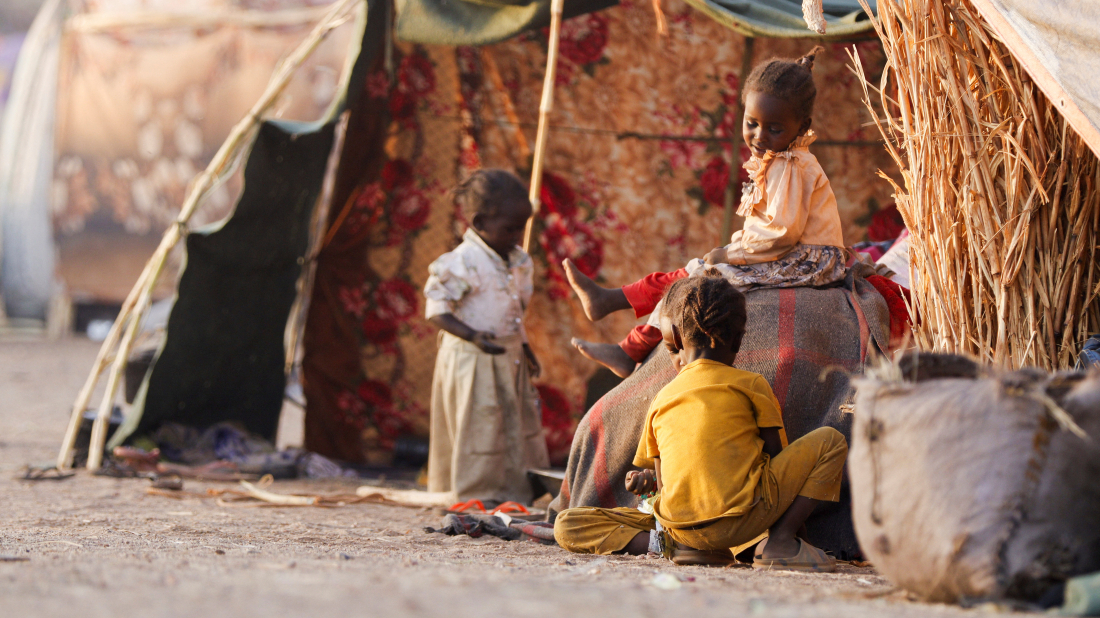Kazakhstan vows to fast-track AZAL crash investigation amid rising diplomatic tensions
Kazakhstan has vowed to speed up its investigation into the Azerbaijan Airlines (AZAL) crash near Aktau, as mounti...

Deep funding cuts are pushing a generation of children in Sudan to the brink of irreversible harm, the United Nations Children's Fund (UNICEF) said on Tuesday, as humanitarian support is scaled back and malnutrition persists across the country.
The crisis comes amid what UN agencies describe as one of the worst funding shortfalls in decades, worsened by decisions from the United States and other donors to slash foreign aid budgets.
"Children have limited access to safe water, food, healthcare. Malnutrition is rife, and many good children are reduced to just skin, bones," said Sheldon Yett, UNICEF’s Representative in Sudan, speaking via video link from Port Sudan.
Sudan’s conflict, now in its second year, pits the army against the rival Rapid Support Forces (RSF) and has displaced millions. The fighting has fragmented the country, with RSF forces still entrenched in large parts of western Sudan.
In July, the World Food Programme (WFP) warned that several areas south of the capital Khartoum were at risk of famine.
According to UNICEF, funding cuts are shutting children out of life-saving services, even as humanitarian needs grow rapidly.
"With recent funding cuts, many of our partners in Khartoum and elsewhere have been forced to scale back... We are being stretched to the limit across Sudan, with children dying of hunger," Yett said.
"We on the verge of irreversible damage being done to an entire generation of children in Sudan."
The United Nations Office for the Coordination of Humanitarian Affairs (OCHA) said only 23% of the $4.16 billion global humanitarian response plan for Sudan has been funded.
UNICEF added that access to areas in need remains limited, with the rainy season rendering some roads impassable and key zones, such as Al-Fashir, still under siege.
"It has been one year since famine was confirmed in ZamZam camp and no food has reached this area. Al-Fashir remains under siege. We need that access now," said Jens Laerke of OCHA.
The Kremlin is utilising the recent United States and Israeli military strikes on Iran to validate its ongoing war in Ukraine. Russian officials are pointing to the escalation in the Middle East as evidence that Western nations do not adhere to international rules.
Saudi Arabia’s state oil giant Saudi Aramco closed its Ras Tanura refinery on Monday following an Iranian drone strike, an industry source told Reuters as Tehran retaliated across the Gulf after a U.S.-Israeli attack on Iranian targets over the weekend.
The Middle East crisis intensifies after the deadly attack on the compound of the Supreme Leader of Iran Ali Khamenei on Saturday that killed him, other family members and senior figures. Iran has launched retaliatory strikes on U.S. targets in the region.
U.S. President Donald Trump said the U.S. military has enough stockpiled weapons to fight wars "forever"; in a social media post late on Monday. The remarks came hours before conflict in Iran and the Middle East entered its fourth day.
Türkiye raised its security level for Turkish-flagged vessels in the Strait of Hormuz to Level 3 on Sunday (2 March). The development follows Iranian restrictions on shipping after U.S. and Israeli strikes and confirmation of Supreme Leader Ali Khamenei’s death.
Strikes across the Middle East are intensifying, fuelling travel disruption, driving up global energy prices and forcing diplomatic missions to shut their doors as tensions continue to rise.
U.S. President Donald Trump has said the United States has a “virtually unlimited supply” of munitions and is capable of sustaining military action indefinitely, as the conflict with Iran entered its fourth day.
The United Nations has called for an investigation into a deadly attack on a girls’ primary school in Iran, which Iranian officials say has killed more than 100 children. The U.S. has said its forces “would not” deliberately target a school.
U.S. first lady, Melania Trump chaired a UN Security Council meeting on children and education in conflict on Monday (2 March), a move criticised by Iran as hypocritical following U.S. and Israeli strikes that triggered a UN warning about risks to children.
Start your day informed with AnewZ Morning Brief. Here are the top news stories for the 3rd of February, covering the latest developments you need to know.
You can download the AnewZ application from Play Store and the App Store.

What is your opinion on this topic?
Leave the first comment